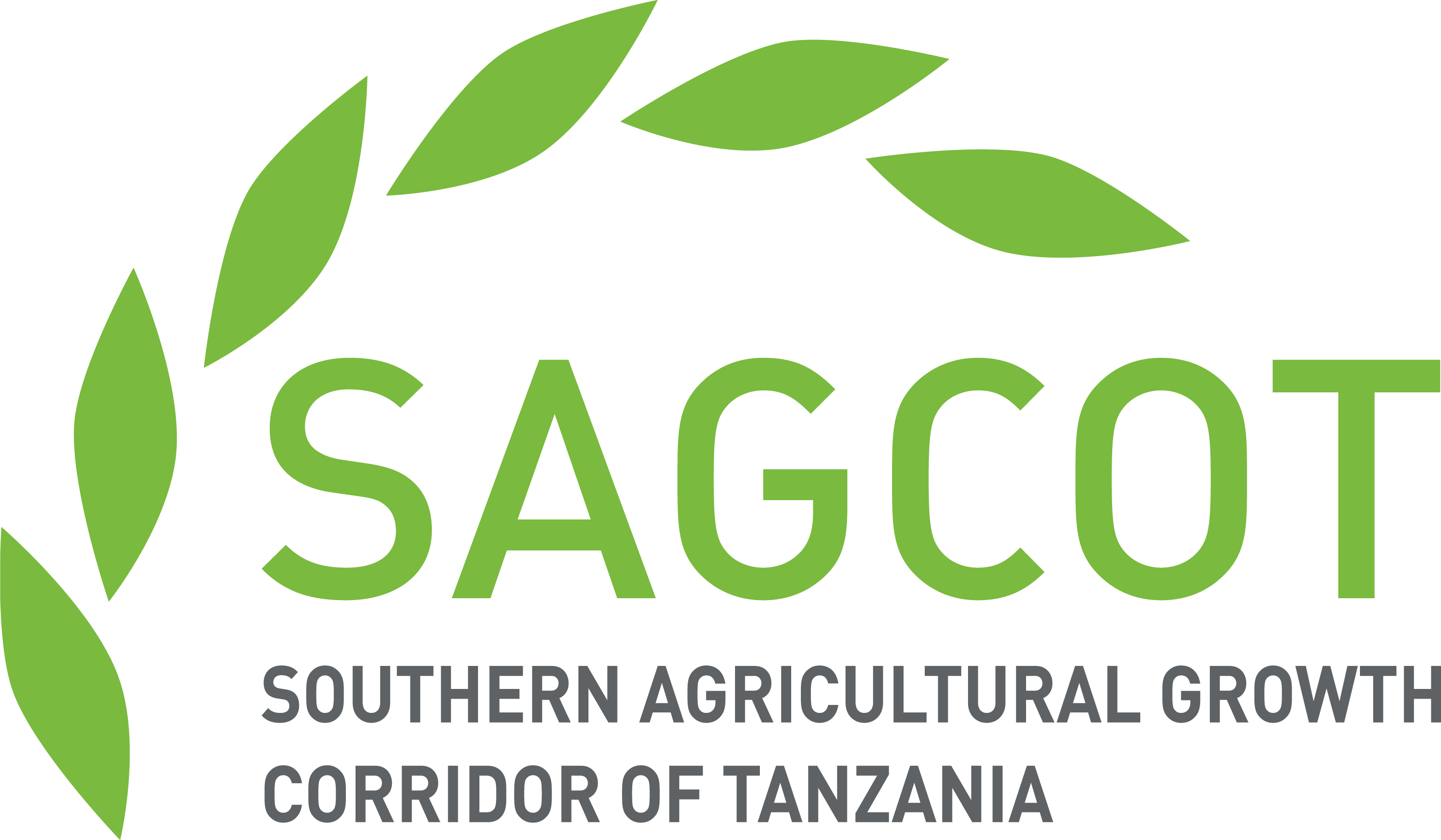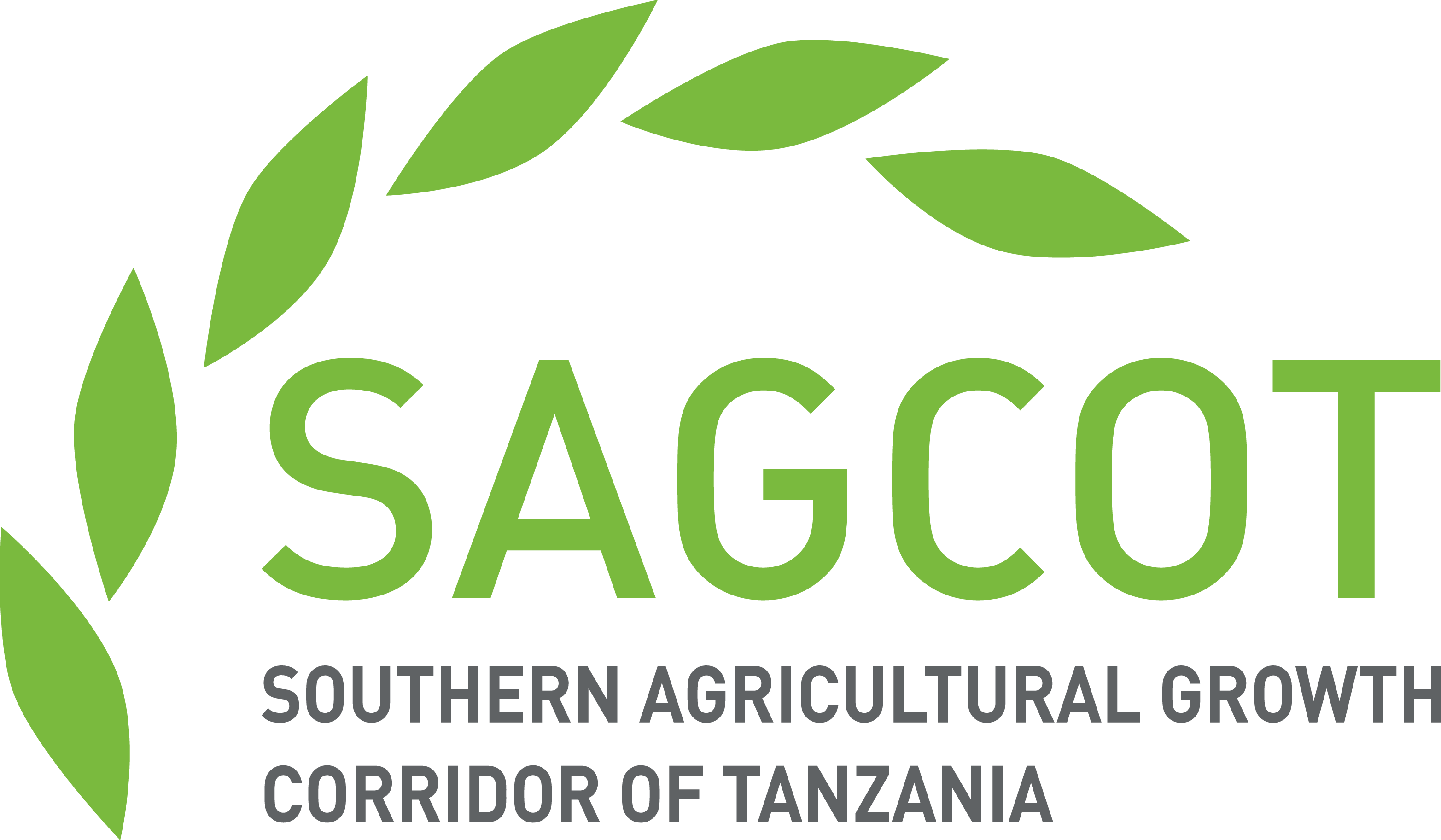The 2023/2024 season marks a pivotal moment for The Tanzania Sustainable Soybean Initiative (TSSI), spearheaded by the Southern Agricultural Growth Corridor of Tanzania (SAGCOT). The initiative has successfully established 139 demonstration plots across the SAGCOT corridor. These sites serve as practical examples of effective agricultural practices. Farmers directly witness the benefits of high-quality seeds, precise fertilizer application, and advanced inoculation methods. “Farmers can see firsthand the tangible benefits of these improved practices,” says Mr. Abdallah Msambachi, Programme Manager of TSSI at the SAGCOT Centre.
On Monday, May 20, 2024, Mr Damasi Rubuva, the head of the agriculture, livestock, and fisheries division of the Mufindi District Council, addressed a gathering of farmers and local leaders at a demonstration farm in Igombavano Village, Mufindi. SAGCOT organized the event to promote the TSSI.
“We are all witnesses to the fact that we have a demonstration farm here in the village, and fortunately, it is located by the roadside focusing on soybeans, which is a vital crop.”
Mr Rubuva emphasized the importance of soybeans as a sustainable and profitable crop for local farmers. “Here, we have learned various techniques from the beginning, including different methods to enable the production of this soybean crop. I would like to request from my fellow farmers that once we are satisfied with the technology we are receiving here, we should ensure that we plant enough soybeans next year. Soybeans have a market that is not problematic. We grow many crops, but when it comes to harvesting, we harvest a lot and then start wondering where to sell them. When we harvest a lot, the prices of all other crops drop, but soybeans maintain their price whether we harvest a lot or a little. This is because a large portion of this crop can be used domestically, and we can also sell it abroad.” Mr Rubuva praised the early efforts and enthusiasm of the farmers and reassured them of the local government’s support.
Farmers Share Insights on Soybean Farming Success at Igombavano Village
Farmers speaking at a demonstration farm in Igombavano Village shared their experiences and insights on applying new agricultural technologies. Miliani Ernest Chatila, Secretary of Framer’s Group, noted. “I am the secretary of the group that manages this farm, which has 30 members, including four men and 26 women. We have used various technologies on this farm, and the people we are talking about know all the technologies. They have promised to be soybean farmers in the coming season,” Chatila said. He added, “While these farmers manage the demonstration farm, more than 30 people have participated in acquiring these techniques.”
Cornady Marko Maliole, a farmer, shared his observations from the evaluations conducted on different farming groups. “My name is Cornady, and I am one of the farmers who attended this soybean farming seminar. According to our evaluations, all groups performed well, but there were differences in their performance. Some have done very well, while others have done slightly less well,” Maliole noted.
“We saw the first group, which was planted without services, meaning it was only weeded, and the soybeans have grown. However, looking inside, they lack vaccinations, so some pests have attacked them, which has affected their yield. However, there are some groups that have done better because they received all the services. Some only had lime without fertilizer and performed well, while those who received all the services also performed well. I will go with the one with lime, vaccinations, and fertilizer for market needs,” he explained.
Leoncia Edward Mdindile, another farmer, shared her learning experience from the different areas of the farm. “What I learned is that I visited all areas, even those where nothing was added, but I saw that where all things like vaccinations, fertilizer, and lime were used, it performed better,” she said. “Although other areas also tried, the area that was just planted and weeded also did quite well.”
The farmers’ feedback underscores the importance of integrating advanced agricultural techniques to enhance crop production and ensure sustainable farming practices. The TSSI project, focusing on training and technology transfer, empowers local farmers, providing them with the tools and knowledge needed for improved yields and market access.
Ms Gudelinda Tsere, the Regional Agriculture Officer for Iringa, addressed farmers and local leaders at a demonstration farm in Igombavano Village and emphasized the importance of continuing to use the technology learned at the demonstration farm. “Dear fellow farmers, I urge you to continue using the technology you have learned here in your areas. You have learned various techniques for planting, fertilizing, and vaccinating. We ask you to continue and encourage what you have learned here to be extended. We have faith that next year, every farmer and every group member will have their farm,” she stated.
Addressing the necessity of high-quality products, Tsere remarked, “Another thing I would like to emphasize to farmers is to ensure the quality of our products. The market is there; the problem is quality. Many traders are looking for maize and soybean, but the biggest challenge identified is the quality of the produce. A trader comes and finds good and bad maize mixed. How does he take it? How does he sell it? So, I emphasize that farmers should ensure the quality of our products.”




